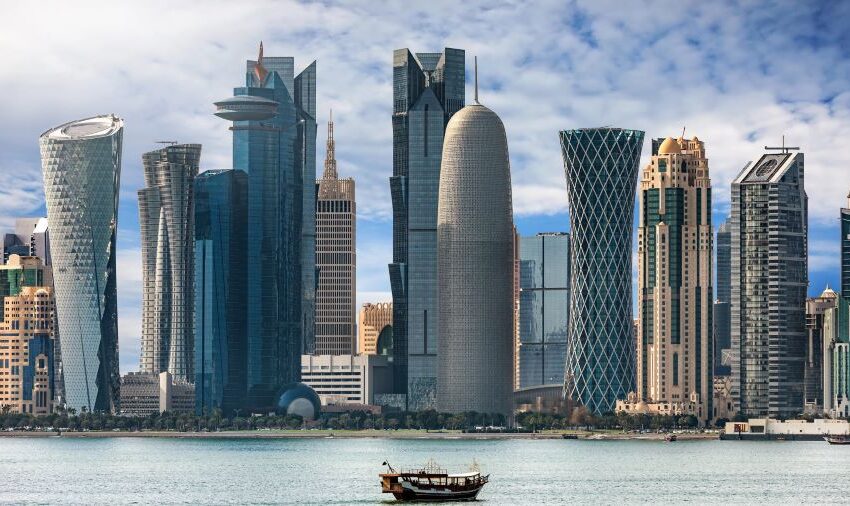
Qatar’s Annual Growth Rate Projected to be Around 4.75%
Qatar’s economy has shown signs of a gradual rebound as its real GDP growth declined from 4.2% in 2022 to 1.2% percent in 2023, mainly due to contracting construction activities and moderating services growth after the 2022 FIFA World Cup, the International Monetary Fund (IMF) said.
Tourism, on the other hand, strengthened significantly since the World Cup. Recent high frequency indicators and labour market development point to gradual growth strengthening in 2024, an IMF delegation which visited Qatar between November 10 and 21, said.
The 2024-25 real GDP growth is expected to reach 2%, supported by public investment, spill-overs from the ongoing LNG expansion project, and strong tourism. The medium-term outlook is more favourable, with the average annual growth projected to be around 4.75%, benefitting from the significant LNG production expansion and NDS3 reform implementation.
Following the earlier monetary policy tightening, headline inflation is likely to ease to 1% in 2024 and gradually converge to 2%. The fiscal and current accounts are projected to remain in surpluses over the medium term. Risks to the outlook are broadly balanced, the IMF said.
While some fiscal space was deployed to support the slowing economy in 2023, the fiscal stance remained consistent with the level that ensures intergenerational equity. Continued fiscal discipline is expected for 2024, and broadly prudent spending plans are envisaged under the upcoming 2025 budget.
The extension of the medium-term budget to cover five years and progress in implementing program-based budgeting are commendable, the IMF said.
The positive economic outlook provides an opportunity to accelerate revenue diversification, especially to introduce a value-added tax, enhance spending efficiency and gradually align domestic and export energy prices, and reorient public spending to facilitate private sector growth.
Adopting a full-fledged medium-term fiscal framework, with a fiscal anchor to ensure intergenerational equity and complemented by greater transparency and risk management, will enhance fiscal sustainability and support economic transformation.
The IMF team said that Qatar Central Bank (QCB) has broadly maintained the monetary policy in line with the US FED, consistent with the currency peg to the US dollar. Its progress in enhancing liquidity management is commendable, and continued efforts are important to further strengthen the effectiveness of the monetary operational framework.
Banking Sector Healthy
The banking sector remains healthy, thanks to robust buffers, diligent QCB supervision and ample hydrocarbon liquidity. Continued vigilance is important to ensure banking sector stability, including to manage banks’ net foreign liabilities (although their average maturity have lengthened and external funding sources have become more diversified), address asset quality concerns in some banks, and monitor the interconnectedness between banks and the public sector, it said.
Moreover, formalising the financial safety net would further enhance predictability, efficiency, and confidence. Keeping the momentum in domestic financial market deepening is also important, guided by the Third Financial Sector Strategy. Qatar’s excellent progress in fighting financial crimes should continue.
“Achieving Qatar’s vision to shift from a state-led growth model to a more knowledge-based and private sector-driven one requires enhancing human capital and economic complexity. Strong reform momentum created by NDS3 is encouraging, and the success hinges on proper prioritisation and enhanced inter-agency coordination in reform implementation,” the IMF team said.
It continued: “Priorities are to build a highly skilled labour force, foster innovation, promote trade diversification, FDI and domestic knowledge spill-overs, and further enhance business efficiency. Qatar is well positioned to benefit from AI adoption and broader digitalization while due attention is needed to monitor their labour market impact. A concerted effort among stakeholders is critical to fulfil Qatar’s climate goals.”















